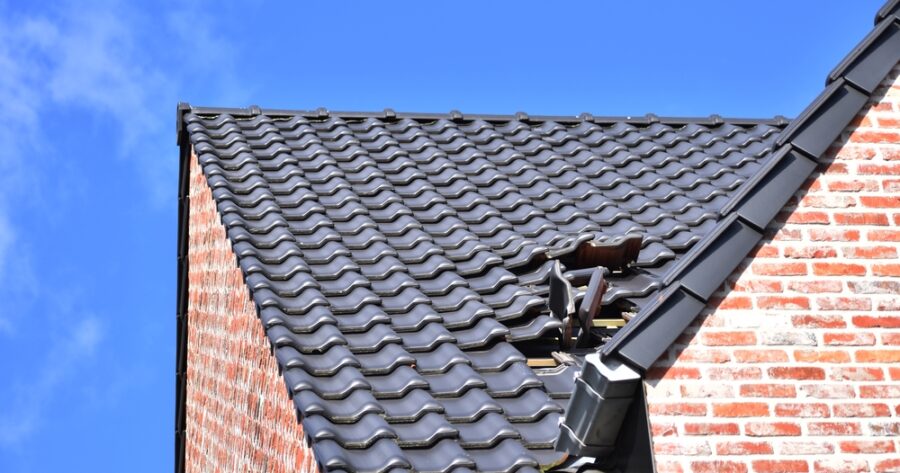When your roof starts to show signs of wear, you may wonder if it’s better to repair it or replace it entirely. This decision can be challenging, as it depends on factors like the age, condition, and extent of damage to your roof. Knowing what signs to look for and understanding what each option involves will help you make a wise choice that protects your home and saves you money.
Assessing the Condition of Your Roof
The first step is to carefully assess your roof’s condition. Look for visible signs like cracked, missing, or curling shingles. Water stains on your ceilings or walls indicate a possible leak, which can weaken the roof’s structure. Don’t forget to check your attic for any signs of light or moisture; these often signal issues that need attention.
If you notice several small, isolated problems, a repair may be enough. However, if the damage appears widespread, replacement might be more practical. Getting a professional inspection can also help determine the condition of your roof accurately. Professionals can spot hidden problems that might worsen over time if not addressed.
Age of Your Roof: A Key Factor
The age of your roof plays a significant role in deciding between repair and replacement. Most roofs have a lifespan of 20 to 30 years, depending on the materials used. Asphalt shingles, for example, typically last around 20 years, while metal roofs can last up to 50 years or more. If your roof is nearing the end of its expected lifespan, it may be wiser to replace it rather than invest in frequent repairs.
For newer roofs, repairs may be enough to address minor issues, extending the life of the roof without the cost of a full replacement. But if your roof is old and starting to deteriorate, replacement could be a more cost-effective choice in the long run, reducing future repair costs.
Extent and Type of Damage
The type and extent of damage also influence the repair vs. replace decision. Small issues like a few cracked shingles or minor leaks can often be fixed easily. These repairs are generally affordable and can keep your roof in good shape for years to come. Minor damage doesn’t usually require a replacement unless it spreads or recurs frequently.
On the other hand, significant structural damage, such as sagging, large areas of missing shingles, or extensive water damage, likely calls for a replacement. If the damage affects the structural integrity of your roof, it’s best to consider a replacement for the safety of your home. Repeated repairs for similar issues may only be temporary fixes, which can end up being costly in the long term.
Costs of Repair vs. Replacement
Cost is a major factor in deciding whether to repair or replace your roof. Typically, repairs are cheaper upfront, especially if they address a localized issue. Repair costs vary based on the type of problem, materials needed, and labor, but they are generally more affordable than a full replacement. However, frequent repairs add up over time and may exceed the cost of a new roof if issues keep recurring.
Replacement, although more expensive initially, could save you money over time if your roof is old or severely damaged. Replacing the roof means a fresh start, with warranties on both the materials and installation. New roofs also tend to increase the value of your home, making replacement a worthwhile investment, especially if you’re planning to sell soon.
Energy Efficiency and Your Roof’s Condition
Another aspect to consider is the energy efficiency of your roof. Older or damaged roofs can allow heat to escape during winter and let warm air in during summer, making it harder to maintain a comfortable indoor temperature. This can increase your energy bills, costing you more in the long run. Newer roofing materials are designed to be more energy-efficient, helping you save on heating and cooling costs.
If energy efficiency is a priority, and your current roof is outdated, replacing it with modern, energy-saving materials could be beneficial. While repairs can fix immediate issues, they won’t improve the roof’s overall energy performance if the materials are inefficient.
Making the Right Choice for Your Roof
Deciding whether to repair or replace your roof depends on several factors, including the age, condition, extent of damage, and costs involved. If your roof is fairly new with only minor issues, a repair might be enough to extend its life. However, if it’s old, energy-inefficient, or has extensive damage, a replacement could be the better long-term choice.
Taking time to evaluate your roof’s condition and consulting with a roofing professional will help you make the best decision for your home. Whether you opt for repairs or a full replacement, addressing roof issues promptly will protect your home and ensure it stays safe and comfortable for years to come.
